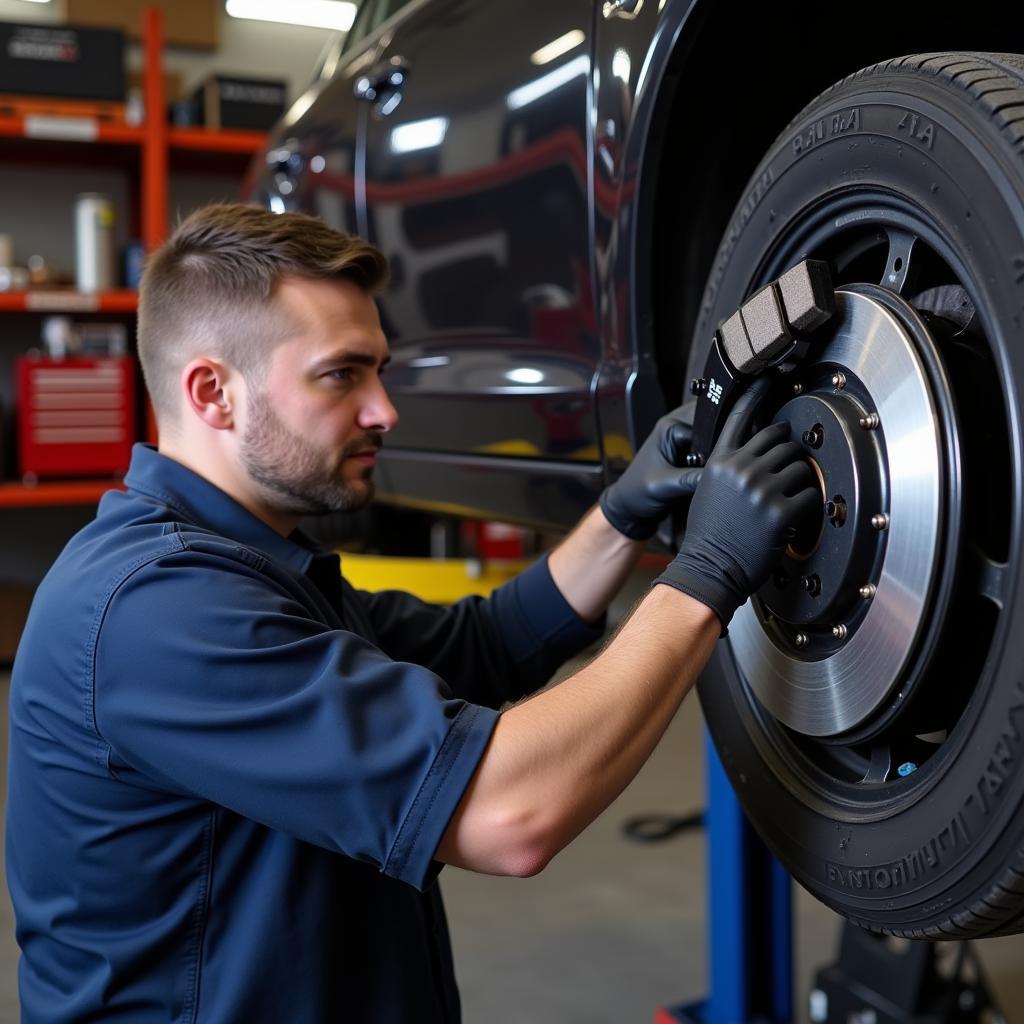The Warner 12-1 4 x 5-1 2 trailer brake assembly is a popular choice for boat trailers, utility trailers, and other light-duty applications. But like any mechanical system, these brakes can experience issues over time. Whether you’re dealing with unresponsive brakes, dragging brakes, or noisy operation, this guide is here to help you troubleshoot and resolve common problems.
Understanding Your Warner 12-1 4 x 5-1 2 Trailer Brakes
Before diving into troubleshooting, it’s important to have a basic understanding of how these brakes function. The Warner 12-1 4 x 5-1 2 utilizes a hydraulic drum brake system. When you apply your tow vehicle’s brakes, hydraulic pressure is transferred to the trailer brakes, forcing the brake shoes outward against the drum. This friction slows down and stops the trailer’s wheels.
Common Issues and Troubleshooting Tips
1. No Brakes or Reduced Braking Power
Possible Causes:
- Low or Leaking Brake Fluid: The most common culprit is insufficient brake fluid in the system. Inspect your master cylinder and check for any signs of leaks along the brake lines.
- Worn Brake Shoes: Over time, brake shoes wear down and require replacement. If your shoes are excessively thin, they won’t make proper contact with the drum.
- Air in the Brake Lines: Air bubbles in the brake lines can compress, resulting in a soft or spongy brake pedal and reduced braking force.
- Malfunctioning Wheel Cylinder: A leaking or seized wheel cylinder will prevent hydraulic pressure from reaching the brake shoes.
Troubleshooting Steps:
- Check Fluid Level and Lines: Ensure the master cylinder has an adequate brake fluid level. Inspect all brake lines, hoses, and connections for leaks.
- Inspect Brake Shoes: Remove a brake drum to assess the thickness of the brake shoes. If they are worn beyond the minimum specification, replace them.
- Bleed the Brakes: If you suspect air in the system, bleed the brakes to remove it. This involves opening bleeder valves on each wheel cylinder while someone depresses the brake pedal.
- Inspect Wheel Cylinders: Check for any signs of fluid leaks around the wheel cylinders. Replace any damaged or malfunctioning cylinders.
2. Trailer Brakes Locking Up or Dragging
Possible Causes:
- Improperly Adjusted Brakes: If the brakes are adjusted too tightly, the shoes will constantly rub against the drum, leading to overheating, premature wear, and reduced fuel efficiency.
- Seized Brake Components: Rust, corrosion, or lack of lubrication can cause brake components, such as the wheel cylinder pistons or parking brake mechanism, to seize.
- Hydraulic System Issues: A malfunctioning master cylinder or a blockage in the hydraulic lines can lead to uneven pressure distribution, causing one or more brakes to drag.
Troubleshooting Steps:
- Check Brake Adjustment: Consult your Warner trailer brakes owner’s manual for the proper adjustment procedure. Back off the adjuster until the wheel rotates freely without any dragging.
- Inspect for Seized Components: Remove the brake drum and check for any signs of rust or binding in the wheel cylinder, parking brake levers, or other moving parts. Clean and lubricate as needed.
- Examine Hydraulic Components: Inspect the master cylinder and brake lines for any signs of leaks, damage, or blockages.
3. Noisy Brakes
Possible Causes:
- Worn Brake Shoes: Worn brake shoes can produce a squealing or grinding noise, especially during braking.
- Worn or Grooved Brake Drum: A damaged drum surface can cause vibrations and noise.
- Loose Components: Loose brake hardware or a worn-out star wheel adjuster can create clicking or rattling sounds.
Troubleshooting Steps:
- Inspect Brake Shoes and Drum: Examine the brake shoes for uneven wear or damage. Check the drum surface for grooves or scoring.
- Tighten Loose Components: Ensure all brake hardware, including the adjuster, is securely fastened.
- Lubricate Moving Parts: Apply high-temperature brake grease to the contact points between the backing plate and shoes to reduce noise.
When to Seek Professional Help
While many trailer brake issues can be addressed with basic DIY troubleshooting, certain situations warrant the expertise of a qualified mechanic. These include:
- Complex Hydraulic Problems: If you suspect issues with your master cylinder, proportioning valve, or other hydraulic components, seeking professional help is recommended.
- Persistent Brake Issues: If the problem persists after attempting the troubleshooting steps outlined in this guide, it’s best to consult a professional to prevent further damage.
- Lack of Experience: If you’re uncomfortable working with brake systems or lack the necessary tools and experience, it’s safer to have a professional handle the repairs.
Maintaining Your Warner 12-1 14 x 5-1 2 trailer brakes
Preventative maintenance is key to ensuring the longevity and reliability of your trailer brakes:
- Regular Inspections: Regularly inspect your trailer brakes for wear and tear. Look for signs of fluid leaks, worn brake shoes, and damaged components.
- Proper Lubrication: Lubricate all moving parts of the brake system, including the adjuster, wheel cylinder pistons, and parking brake mechanism.
- Timely Adjustments: Adjust your brakes periodically or whenever you notice a decrease in braking performance.
By understanding the common issues associated with Warner 12-1 4 x 5-1 2 trailer brakes and following the provided troubleshooting tips, you can keep your trailer stopping safely and efficiently for years to come.

